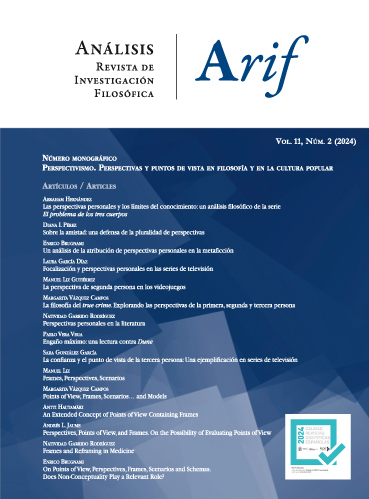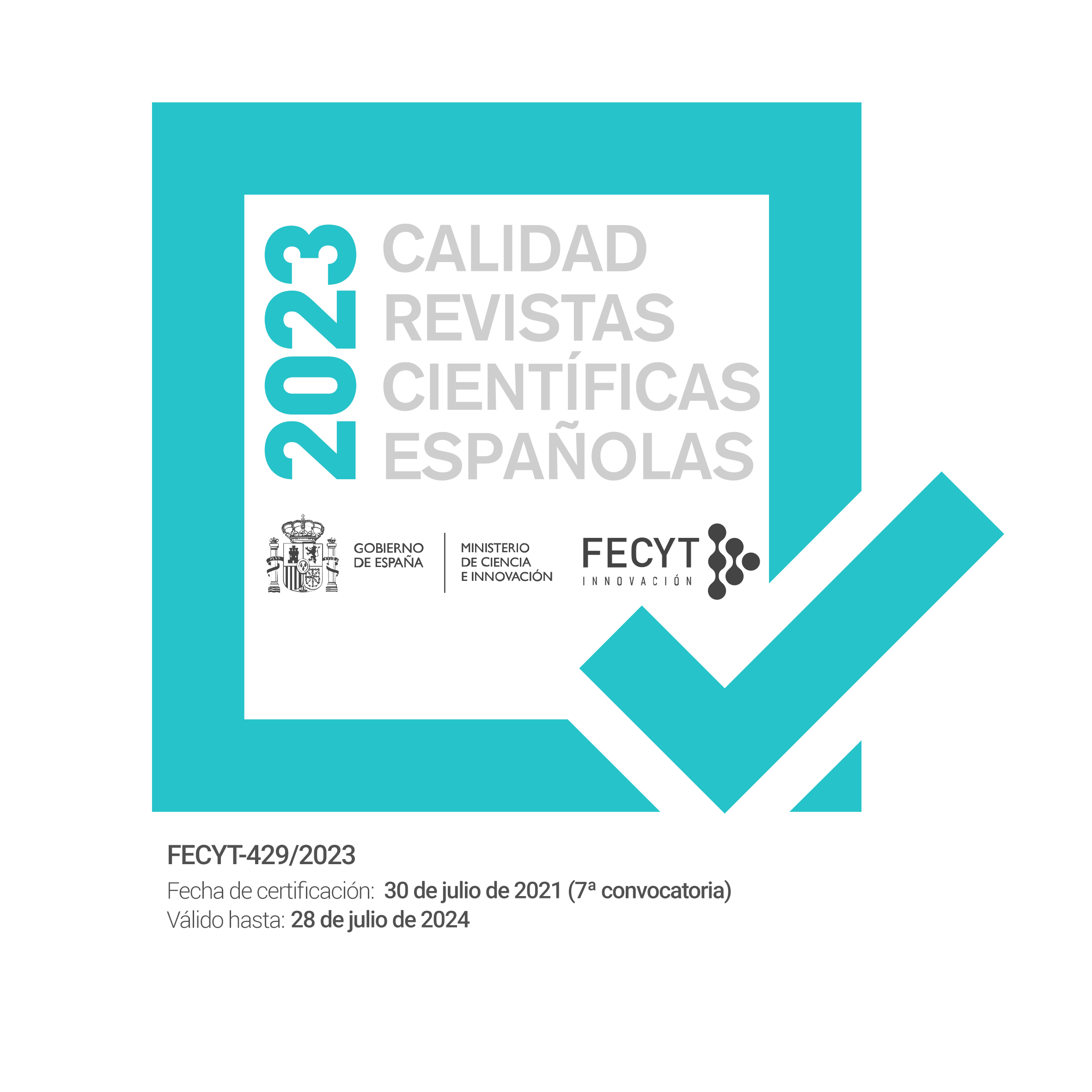ULTIMATE DECEIT: A READING AGAINST DUNE
DOI:
https://doi.org/10.26754/ojs_arif/arif.2024211333Abstract
In this article, I argue that in Dune (1965) a transgression occurs which I will call the "ultimate deceit", a transgression that consists of the perversion (or alteration) of the fictional pact between writer and reader. This deceit is somewhat akin to the literary figure of the unreliable narrator. Peculiarly, the "ultimate deceit" in Dune is based on a very experimental way of articulating fictional and real perspectives; that is, in the alignment of the perspectives of the characters and the author with those of the readers.Downloads
Downloads
Published
How to Cite
Issue
Section
License
Copyright (c) 2024 Pablo Vera Vega

This work is licensed under a Creative Commons Attribution-NonCommercial-NoDerivatives 4.0 International License.
Los autores que publican en esta revista están de acuerdo con los siguientes términos: los autores conservan los derechos de autor y garantizan a la revista el derecho de ser la primera publicación del trabajo al igual que licenciado bajo una Creative Commons Reconocimiento-No Comercial-Sin Obra Derivada 4.0 (CC BY-NC-ND) que permite a otros compartir el trabajo con un reconocimiento de la autoría del trabajo y la publicación inicial en esta revista. Los autores pueden establecer por separado acuerdos adicionales para la distribución no exclusiva de la versión de la obra publicada en la revista (por ejemplo, situarlo en un repositorio institucional o publicarlo en un libro), con un reconocimiento de su publicación inicial en esta revista.






